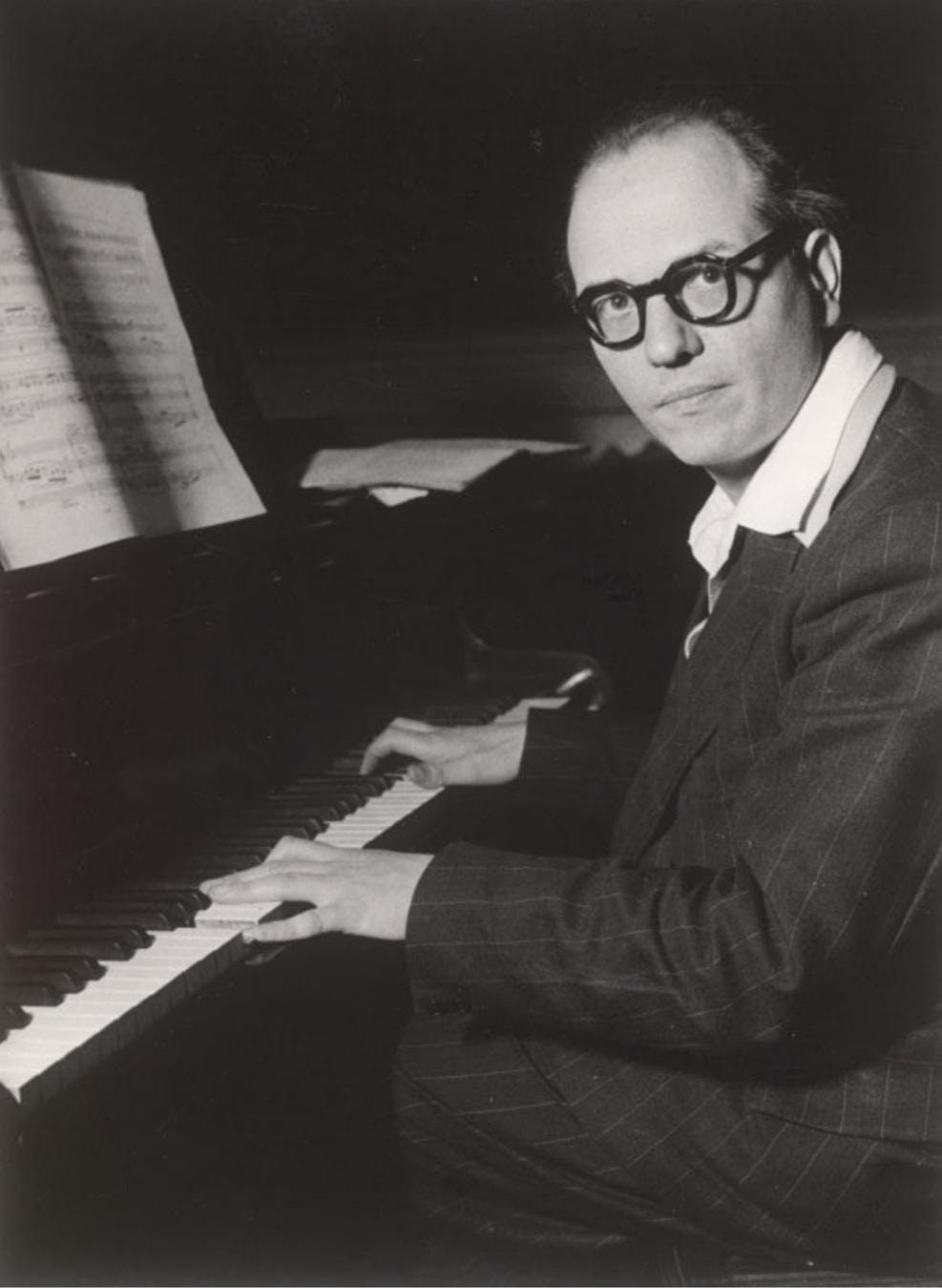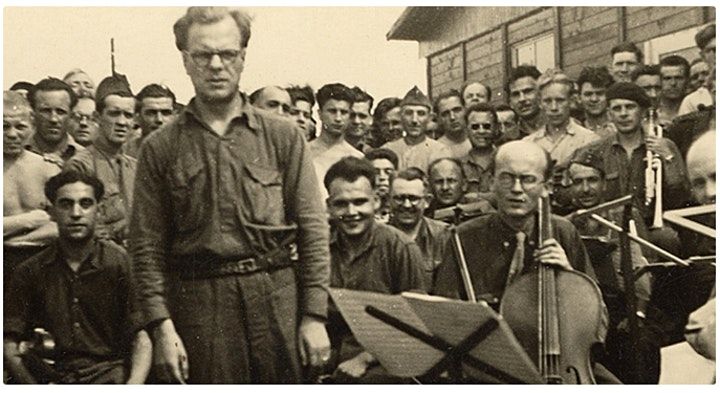Messiaen's Quartet for the End of Time ~ Peter Fancovic & Friends
Schedule
Tue Dec 07 2021 at 08:00 pm to 09:30 pm
Location
Saint John's In the Village | New York, NY

About this Event
Reimann Music & Arts at St. John's are delighted to welcome
Alexandrina Boyanova - violin
Valeriya Sholokhova - cello
Andy Biskin - clarinet
Peter Fancovic - piano
...for this exciting concert of timeless music.
The performance will include spoken commentary by clarinetist Andy Biskin who invited his colleagues to play the work. Pianist Peter Fancovic is part of the Reimann Music Studio piano faculty as well as a participant in the International Stretto Piano Festival created by Hannah Reimann.
ABOUT THE PERFORMERS
Peter Fancovic is an award winning pianist whose performances have taken him to play in concert halls around the world to three continents. Early on as a student and later as a professional, his career was marked with competition awards, such as or prize for Best Interpretation of Beethoven’s work (Czech Republic),1st prize in the nationwide Slovak Conservatories Competition, Winner of the Manhattan School of Music Concerto Competition, (New York City), and as a Finalist in the Concert Artists and Associates International Concerto Competition in New York.
Clarinetist Andy Biskin has released six CDs of original music and has performed at many New York venues including BAM, Joe’s Pub, Symphony Space, Barbes, the Whitney Museum, and The Stone.
Cellist Valeriya Sholokhova is an in-demand soloist and chamber musician based in New York City. Valeriya has appeared on concert stages at notable venues such as Carnegie Hall, St. Patrick’s Cathedral, Alice Tully Hall, and Saturday Night Live. She has toured internationally across Europe, performing in Denmark, Austria, Croatia, Poland, the Baltic States, Sweden, Germany, and Ukraine. Recently, Valeriya performed as cello chair in the highly-acclaimed production of Fiddler on the Roof in Yiddish.
Alexandrina Boyanova is a multi-faceted violinist and violist, teacher, and scholar. Her first CD, Tribute to Vasco Abadjiev, was recently produced and released by the Bulgarian National Radio. She has premiered Oscar- and Grammy-winning composer Tan Dun’s Water Passion in Brussels, Shanghai, Athens, Philadelphia, and New York.
ABOUT THE MUSIC
FROM WIKIPEDIA:
French composer Olivier Messiaen wrote Quartet for the End of Time while a prisoner of war in German captivity and it was first performed by his fellow prisoners. It is generally considered one of his most important works.
From classicalmusicindy.org:
Conditions in the overcrowded camp were brutal: as Le Boulaire, wrote, “Many men died in captivity. Temperatures of [-13º Fahrenheit] were common.” Yet out of these conditions, a miraculous thing happened: with the aid of sympathetic camp guards, Messiaen composed perhaps his most well-known work, the transcendent Quartet for the End of Time. On a freezing night in January 1941, before an unlikely audience of a few hundred soldiers and prisoners, Messiaen and his three fellow musicians gave its first performance. The cellist, Pasquier, described the premiere:
"Everyone listened reverently, with an almost religious respect, including those who perhaps were hearing chamber music for the first time. It was ‘miraculous.’ These people, who had never before heard such music, remained silent. These people, who were completely musically ignorant, sensed that this was something exceptional. They sat perfectly still, in awe. Not one person stirred. No doubt, these people reassumed their original personalities afterward, but there they were subject to a miracle: the miracle of the performance of this music."
FROM WIKIPEDIA:
Messiaen wrote in the Preface to the score that the work was inspired by text from the Book of Revelation (King James Version):
"And I saw another mighty angel come down from heaven, clothed with a cloud: and a rainbow was upon his head, and his face was as it were the sun, and his feet as pillars of fire ... and he set his right foot upon the sea, and his left foot on the earth .... And the angel which I saw stand upon the sea and upon the earth lifted up his hand to heaven, and swear by him that liveth for ever and ever ... that there should be time no longer: But in the days of the voice of the seventh angel, when he shall begin to sound, the mystery of God should be finished ..."
Quatuor pour la fin du temps, also known by its English title, Quartet for the End of Time, was premiered in 1941. The piece is scored for clarinet (in B-flat), violin, cello, and piano; a typical performance of the complete work lasts about 50 minutes.
Messiaen was 31 years old when France entered World War II. He was captured by the German army in June 1940 and imprisoned in Stalag VIII-A, a prisoner-of-war camp in Görlitz, Germany (now Zgorzelec, Poland). While in transit to the camp, Messiaen showed the clarinetist Henri Akoka, also a prisoner, the sketches for what would become Abîme des oiseaux. Two other professional musicians, violinist Jean le Boulaire and cellist Étienne Pasquier, were among his fellow prisoners, and after he managed to obtain some paper and a small pencil from a sympathetic guard (Carl-Albert Brüll, 1902–1989), Messiaen wrote a short trio for them; this piece developed into the Quatuor for the same trio with himself at the piano. The combination of instruments was unusual at the time, but not without precedent: Walter Rabl had composed for it in 1896, as had Paul Hindemith in 1938.
The quartet was premiered at the camp on 15 January 1941 in front of about 400 prisoners and guards. Messiaen claimed that 5,000 people attended the performance and that the musicians had decrepit instruments, but those claims are now considered "somewhat exaggerated." The cello was bought with donations from camp members. Messiaen later recalled, "Never was I listened to with such rapt attention and comprehension."
Several months later, Messiaen was released (with the help of Brüll) thanks to an entreaty by his former organ teacher and professor at the Paris Conservatoire, Marcel Dupré, as Messiaen scholar Nigel Simeone writes:
Marcel Dupré’s role in securing Messiaen’s release was a crucial one. He later recalled how he visited Fritz Piersig (at the Propaganda-Staffel in Paris) in early 1941 to plead the case for Messiaen, and was assured that "in ten days’ time, at the latest, he will be in an office". Dupré’s intervention was clearly effective. An emotional letter from Messiaen to Claude Arrieu announcing his newly found freedom allows us to date his return from Silesia (via Nuremberg and Lyon) to Neussargues in the Cantal.
Messiaen and Etienne Pasquier (cellist at the initial premiere) later recorded the quartet on LP for Club Français du Disc (1956), together with Jean Pasquier (violin) and André Vacellier (clarinet).

Where is it happening?
Saint John's In the Village, 218 West 11th Street, New York, United StatesEvent Location & Nearby Stays:
USD 20.00
